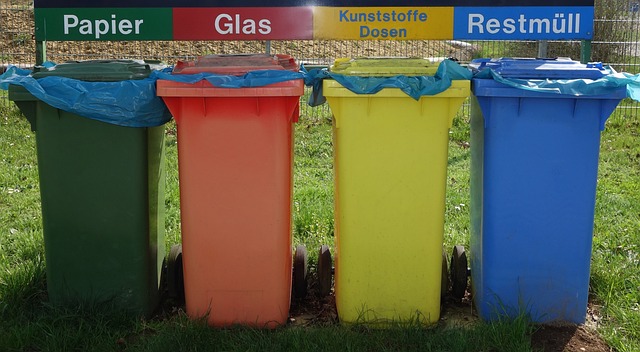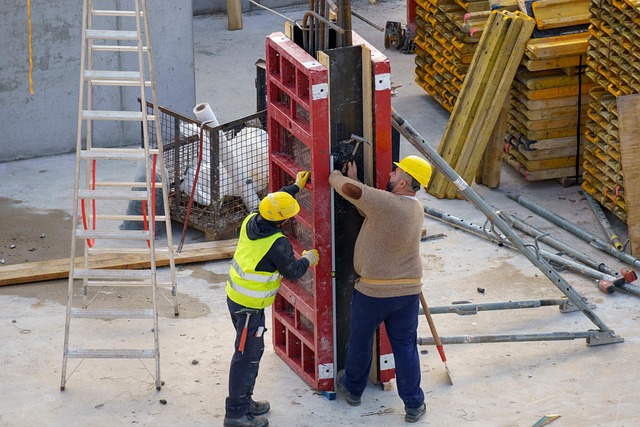Boston promotes commercial e-waste recycling through tailored programs for businesses, partnering with specialized centers to minimize environmental impact, conserve resources, and advance a circular economy. Strategic planning, compliance with local regulations, and selection of certified recyclers are key to successful implementation. Key performance indicators measure program effectiveness, fostering sustainability in the city.
In today’s digital age, managing electronic waste responsibly is paramount, especially in bustling cities like Boston. This article explores the intricacies of establishing a green electronics recycling program for businesses. We delve into the benefits of eco-friendly disposal methods and navigate the process from understanding local regulations to implementing an effective strategy.
Learn about common challenges, how to choose reliable recycling partners, and metrics to measure success in the realm of commercial e-waste recycling Boston.
- Understanding Commercial E-Waste Recycling in Boston
- Benefits of Eco-Friendly Electronics Disposal
- How to Implement an Effective Program
- Common Challenges and Solutions
- Choosing the Right Recycling Partners
- Measuring Success and Impact
Understanding Commercial E-Waste Recycling in Boston

Boston, a city known for its forward-thinking initiatives, has embraced the challenge of commercial e-waste recycling as a vital step towards a sustainable future. With an increasing volume of electronic waste generated by businesses, efficient and responsible disposal methods are essential. The city offers various programs tailored to meet the unique needs of commercial entities when it comes to e-scrap removal services.
Local businesses can participate in these initiatives by partnering with reputable Boston recycling centers that specialize in handling e-waste from different sectors. From outdated business laptops to obsolete server equipment, proper disposal and recycling ensure valuable materials are recovered, reducing environmental impact and contributing to a circular economy. Commercial e-waste recycling in Massachusetts is not just about compliance; it’s a strategic move towards a greener and more sustainable Boston.
Benefits of Eco-Friendly Electronics Disposal

In today’s digital age, responsible electronics disposal is more critical than ever, especially in bustling metropolitan areas like Boston, where commercial e-waste recycling plays a pivotal role in protecting our environment and public health. Traditional methods of disposing of electronic waste often result in harmful substances leaching into soil and water, posing significant risks to communities and ecosystems. However, with proper commercial computer disposal MA, businesses can mitigate these dangers and contribute to a greener future.
Boston recycling for business laptops and other e-waste not only reduces environmental impact but also offers numerous advantages. These include conserving natural resources, minimizing toxic emissions, and fostering a circular economy. Commercial e-waste recycling programs in Massachusetts enable businesses to responsibly manage their electronic assets, ensuring that valuable materials are recovered and reused, thereby decreasing the demand for new raw resources. This sustainable approach not only benefits the planet but also helps businesses stay compliant with environmental regulations while promoting their commitment to eco-friendly practices.
How to Implement an Effective Program

Implementing an effective green electronics recycling program requires strategic planning and a deep understanding of local regulations. For businesses in Boston considering commercial e-waste recycling, partnering with reputable local Boston e-scrap recyclers is key. These professionals are equipped to handle various electronic waste streams, including business laptops, servers, and other tech equipment, ensuring proper disposal according to Massachusetts guidelines.
The first step is to assess your company’s e-waste generation and identify areas for improvement in reduction and recycling efforts. Promote sustainable practices among employees through training and awareness campaigns. Subsequently, integrate a convenient collection system within the office, encouraging staff to responsibly dispose of old electronics. Regularly update recycling policies and engage with local Boston recycling for business laptops solutions to stay aligned with environmental standards, contributing to a greener future for all.
Common Challenges and Solutions

The journey towards sustainable electronic waste (e-waste) management in Boston presents several challenges, but innovative solutions are emerging to meet the growing demand for responsible recycling practices. One of the primary hurdles is the vast volume of commercial and residential e-waste generated annually, which often surpasses the capacity of existing recycling centers. To address this, numerous specialized facilities have opened their doors late in Boston, offering extended hours to accommodate the needs of businesses and individuals looking to recycle old electronics in MA.
Another common challenge lies in ensuring proper data security and environmental safety during the recycling process. Commercial e-waste recycling Boston programs employ advanced technologies and protocols to de-encrypt data from devices, wipe hard drives clean, and destroy components securely. By implementing these measures, recycling centers contribute to protecting sensitive information while promoting eco-friendly disposal methods for hazardous materials commonly found in electronics.
Choosing the Right Recycling Partners

When setting up a green electronics recycling program, selecting the appropriate recycling partners is a strategic move. Businesses in Boston looking to implement commercial e-waste recycling should research local e-scrap recyclers with proven track records and certifications like R2 or e-Stewards. These credentials ensure responsible and environmentally sound practices.
Choosing the right partner means finding businesses that offer not just disposal but also data security, proper disassembly, and recycling of materials like plastics, glass, and precious metals. Opting for e-waste management solutions in MA ensures that your electronic waste is handled efficiently while contributing to a sustainable future.
Measuring Success and Impact

Measuring the success and impact of a green electronics recycling program is paramount to understanding its effectiveness in promoting sustainable practices within the community. In the context of Boston, where commercial e-waste recycling services are readily available, several key performance indicators (KPIs) can be employed to gauge progress. The volume of electronic waste recycled, the rate of diversion from landfills, and the number of local businesses participating are often used as primary metrics. These figures not only highlight successful programs but also provide insights into areas that may require improvement.
Additionally, the quality and efficiency of Boston’s e-scrap recyclers play a significant role in determining the overall impact. By focusing on responsible disposal methods and recovering valuable materials, these local services contribute to both environmental conservation and economic benefits. As recycling electronic waste in Boston becomes more prevalent, the collective effort fosters a culture of sustainability, ensuring that technological advancements align with eco-friendly practices.
Boston’s commitment to sustainable practices is evident through its robust commercial e-waste recycling programs. By understanding the importance of eco-friendly disposal, businesses can significantly contribute to environmental preservation. The article has outlined key steps, from recognizing the benefits to choosing the right recycling partners and measuring success. Effective implementation of these strategies ensures that electronic waste is handled responsibly, fostering a greener future for Boston’s commercial landscape. Commercial e-waste recycling in Boston is not just an initiative; it’s a step towards a more sustainable and environmentally conscious community.














